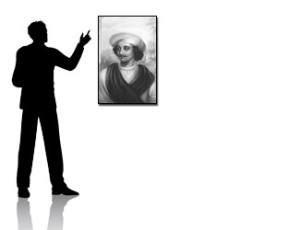Professor of English Chris Foss just has published an article entitled “Individual Redemption through Universal Design; or, How IEP Meetings Have Infused My Pedagogy with an Ethic of Care(taking)” in the latest number of Pedagogy: Critical Approaches to Teaching Literature, Language, Composition, and Culture. Pedagogy is published by Duke University Press and describes itself as “an innovative journal that aims to build a new discourse around teaching in English studies.”
In this article Foss addresses how participating as a parent in the Individualized Education Program (IEP) process has helped to transform his approach to teaching by reinforcing how important it is to endorse a pedagogy that recognizes and values the individuality of students. In attempting to bring both format and delivery in line with the principles of Universal Design for Instruction, Foss relates how he has come to understand such a pedagogical orientation not simply as a generic model for “good teaching” but also more particularly as a reflection of a disability-inflected pedagogy of care(taking).

